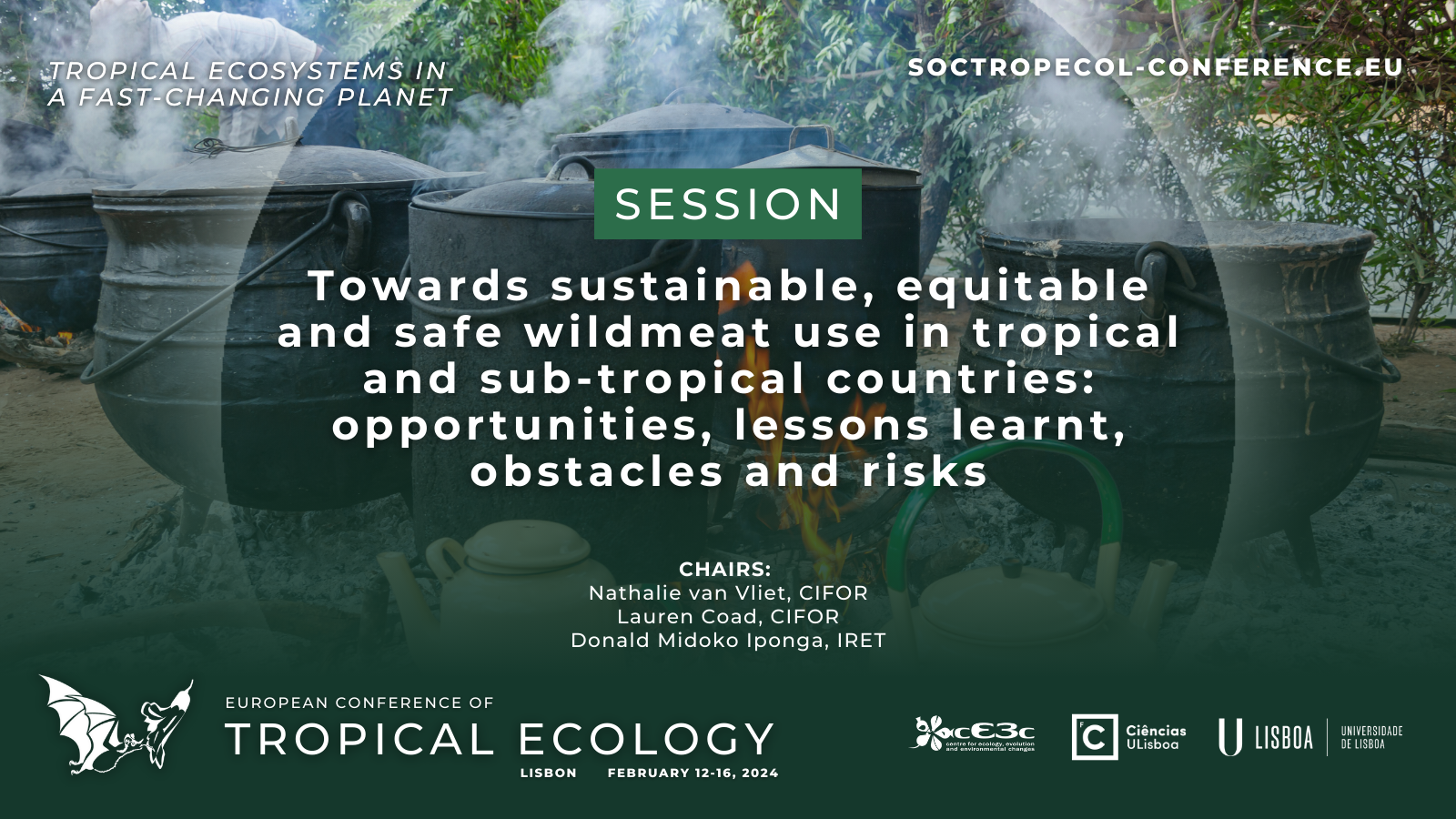[
Close window ]
Towards sustainable, equitable and safe wildmeat use in Tropical and sub-tropical countries: opportunities, lessons learnt, obstacles and risks
Short title: Wildmeat: Opportunities and risks
Chairs: Nathalie van Vliet, Lauren Coad, Donald Midoko Iponga
Contact: nathalievanvliet@yahoo.com
Wild meat refers to meat sourced from non-domesticated terrestrial mammals, birds, reptiles, and amphibians. Although wild meat is consumed andtraded all over the world, it is a particularly important staple in many tropical and sub-tropical areas, where it contributes to food security. Wild meat is often consumed due to a lack of alternatives and plays a pronounced role in peoples’ health in contexts where other sources of protein are either unaffordable or unavailable. Wildmeat also contributes to wellbeing and serves as a source of cultural and spiritual value and collective identity, consumed during festive events, as part of certain traditions, and as a delicacy. Beyond subsistence, wild meat is also traded as part of peoples’ livelihood portfolios, with income earned from wild meat sales often used to purchase other food items and necessities and to pay for school fees or medical care. In light of the importance of wild meat to food security, incomes and wellbeing, there is growing interest in understanding the structure and operations of wild meat use networks and how the sector can provide a sustainable and safe source of protein as well as contribute to equitable benefits. However, wild meat use may come along with irreversible ecological risks, when hunting reduces wildlife populations to extinction and contributes to a breakdown in ecological processes, or to significant health risks when it serves as interface for diseases spill over from wild animal hosts to human populations. The aim of this session is to bring together practitioners and researchers from South America and Africa to share lessons learnt about the opportunities and risks offered by the wildmeat sector. The presentations will evolved around three main questions: 1. How are current wildmeat value chains structured and who benefits or bares the costs?; 2. What indicators, tools and approaches are being used to measure ecological sustainability of wildmeat use?; 3. What are the risks from a one health perspective and what processes are in place to develop food safety protocols related to the use of wildmeat?; 4. What are the determinants for sustainable, equitable and safe wildmeat use?. The presentations will include insights from various countries and regions (Guyana, Zambia, Democratic Republic of Congo, Gabon, Nigeria, Ghana, Tanzania, Indonesia) and will provide food for thought to participants to engage into a productive discussion to improve the sector, reduce risks of future pandemics originating from wildmeat use and prevent further biodiversity loss.
Download the picture corresponding to your session for posting on social media.

